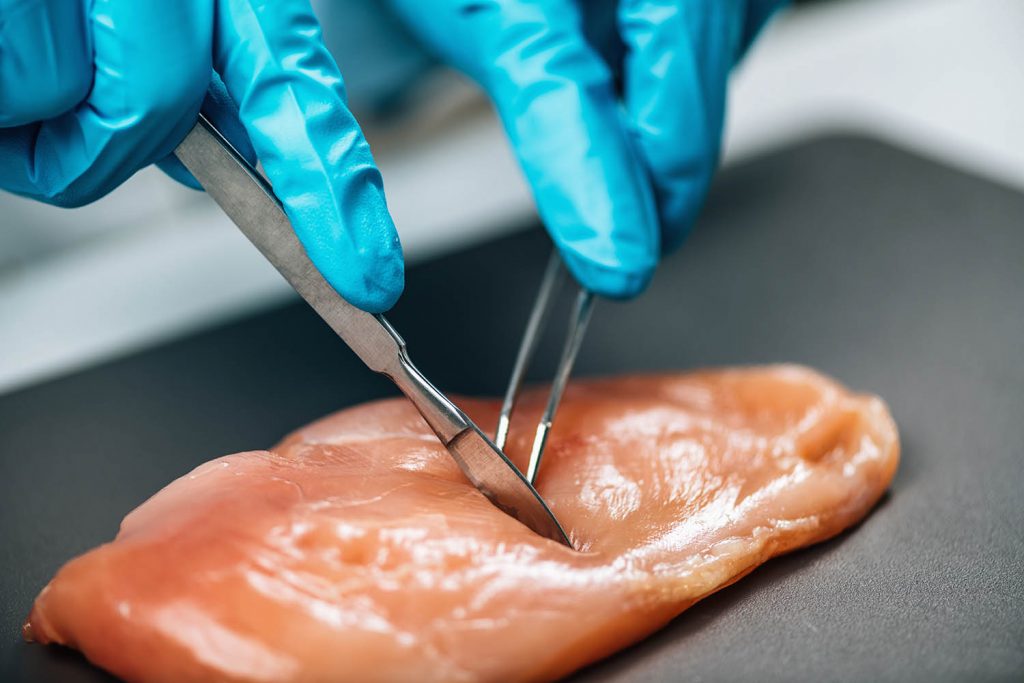IN OTHER LANGUAGES

During transport, birds experience feed and water deprivation, restriction of movements and a challenging microclimate in the transport crate. All these factors stress the animals, causing oxidative stress and the deterioration of meat quality.
In Summer, transportation stress worsens due to heat stress: the temperature of the transport microclimate is 6-12ºC higher than the ambient temperature. If the birds were already suffering from heat stress on the farm, such hot microclimate exacerbates it, being the main cause of low weight, poor carcass yield and substandard meat quality at the slaughterhouse.
Heat stress leads to a drop in the meat pH and to oxidation of fats and proteins. Meat obtained from heat stressed birds is pale, soft, exudative, has a poor flavor and shows a shorter shelf life.
For broilers, it is advised to keep the house temperature below 28ºC for the week before transport. Furthermore, the administration of antioxidant essential oils during the finisher period relieves oxidative stress and improves meat quality.
On the other hand, the physiological response of birds to heat stress includes the elimination of large amounts of sodium and potassium through the urine, as we described in this article. The loss of intracellular potassium reduces the cellular capacity of retaining water, leading to dehydration. During transport, water deprivation makes the animals even more susceptible to dehydration, increasing mortality and carcass condemnation. The supplementation with electrolytes, starting at least 5 days before transport, has been proven beneficial in ameliorating transportation dehydration and stress, especially in the hot season.
PhytoShield© is a liquid supplement that contains:
PlusBreathe© contains essential oils with natural antiseptic, antioxidant, expectorant and mucolytic activity. It has a refreshing taste.
It is indicated to improve the functioning of the respiratory system and to mitigate heat stress in birds, ruminants, pigs and rabbits of all ages. It can also be nebulized in the farm environment.

Certain health statements may not be applicable in your region.